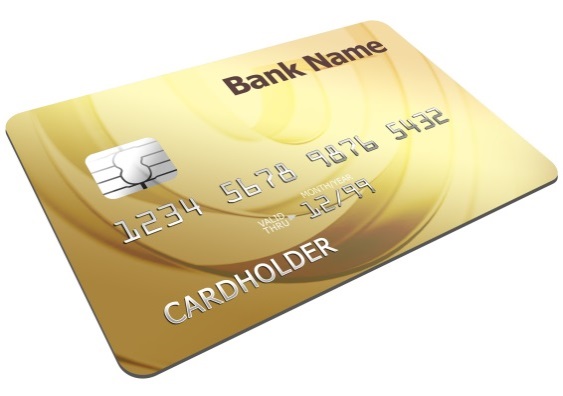PersonalFN's

Presents
How To Become Your Own Financial Planner?
An exclusive Program To Develop The Skills To Manage Your Personal Finance
We believe by signing up for the initiative, you too endeavour to develop the skills needed to understand the nuances of personal finance and be money-wise.
Module VII: How To Ensure That Your Loans Do Not Become A Burden
Session 22: 11 Points to Be Kept In Mind While Opting For a Credit Card

Credit cards, as we all know, is plastic money.
This payment option allows you to buy goods and services without having to pay for them at the time of purchase. This very trait makes plastic money desirable; you wish to own multiple credit cards and swipe them rampantly.
But it is vital to use a credit card with utmost prudence; or else, it may not be too long before you fall into the credit card debt-trap...which may go on to ruin your financial health.
There are various data published by RBI that shows that the debt of an average Indian, especially one who holds a credit card, is rising at an alarming rate.
The situation is severely grim because the annual interest on outstanding credit card dues ranges between 36% and 48%. A high price to pay for using it, indeed!
Here are the vital points to keep in mind while opting for a credit card...
Credit limit:

Know the credit limit on your card before using it. This limit is the maximum amount that you are allowed to spend on your credit card. If you are a first-time credit card user and a spendthrift, it is better that you opt for a card with a low limit (say in the range of Rs 15,000 - Rs 20,000) even though the sales personnel from credit card companies /banks may try to push one with a higher limit, and you may indeed deserve one. Use the credit card legitimately even if you may have an option to exceed the credit limit subject to terms and conditions. This is because; some banks may charge a huge penalty for crossing the limit on your credit card.
Credit Period:
By using your credit card you can buy goods and services on credit for a certain pre-specified period. Such credit period may range anywhere between 30 days to 45 days depending upon the card issuer.
Interest rate:
Credit cards offer a facility where you can pay only the minimum amount due However, if you do so, be ready to pay a very high rate of interest - which could be in the range of 36% p.a. to 48% p.a. -- on the outstanding dues. Hence be very clear on the interest rate applicable on your card, if you're likely to prolong payments.
Annual fees:
Also, you must find out if there are any annual or other fees attached to the credit card and compare it with different banks. You should also speak to the credit card company/bank and see if they are willing to waive-off such fees or charges.
Grace period:
This is the extra time provided by credit card companies / bank to pay your outstanding dues, after the due date, without being levied any interest charges. Longer the grace period, more beneficial it is.
Rewards and incentives:
Some cards offer attractive reward points or incentives on making purchases on the card that can be redeemed or used at a later date. Analyse your spending habits and find out if such cards can be of any advantage to you.
If so, choose a card that suits you the best. For instance, some credit cards allow you to redeem reward points at some apparel stores or specific shopping centres. If you prefer purchasing clothes from these places, choose to use these credit cards and avail the benefits. Likewise, if you are movie buff, consider cards that offer you similar benefits and facilitate savings.
Don't fall for irrelevant benefits:
You see, banks advertise their credit cards really well. Many times they offer various benefits on the credit cards, which might sound alluring but may not be useful to you. Ideally, you should ignore the irrelevant benefits and consider the prime offering. If the card has features that suit you, then you can opt for.
Cover against loss or theft:
Many credit cards offer a kind of insurance cover against loss, theft or fraud. If the card features are not to your liking, reject it regardless of such cover. In any case, on most occasions the insurance cover is usually linked with so many terms and conditions that it becomes tedious to claim.
Borrowing cash is a strict no:
Also, remember that though credit cards can be used for borrowing cash, this can be extremely expensive. Banks charge a very high interest rate for cash borrowings on credit cards, without providing any grace period for its repayment.
Read the Terms & Conditions carefully:
The devil is in the fine print; so read the terms & conditions very carefully, which may have some awkward clauses that could shift the ground. If you find anything in the terms and conditions of the card that has not been conveyed to you or is contrary to what was conveyed to you, seek a clarification from the bank or avoid taking or using that card. Remember that once you take the card and begin using it, it will be assumed that you have read the terms and conditions and accepted them.
Evaluate options to surrender / terminate the card:
Don't fall prey to something that's perilous to your interests. Many credit card companies and banks do not offer option to surrender the card, despite lack of service. So Look for ways to surrender / terminate the card before you land yourself into a debt trap.
Remember that opting for the right credit card is just the first step. How you use this plastic money will determine your financial well-being. Here's the care you should take...
Care To Take While Using Your Credit Card
Use your credit card judiciously - Stretch within your means, or else it can land you in a debt-overhang situation
Make timely payments - Making timely repayments will help you bargain with the bank when it comes to the annual fees/membership fees (if any) a keep your credit score intact.
Avoid converting payments into EMIs - Whenever you make a large purchase via credit cards to satisfy all the fancies of life, avoid opting to convert to an EMI facility. This facility does not come cheap and the interest on the EMI is prohibitive. Again to the extent possible, we recommend that you make the payment before the due date in one go and give the EMI facility a miss.
However, swayed by the consumerism in the country, many individuals own multiple credit cards and swipe them rampantly. The urge of owning things on credit and enjoying a lavish lifestyle, has got many in a credit-card debt trap. As soon as the minimum amount or a part of the amount is defrayed, users get exposed to a stupendously high interest rate. People don't realise when their 'little' purchases become too many, and gets them into a debt trap. It is imperative to use your credit card wisely to avoid getting into a debt trap.
Finally, here are a few...
Points to Remember

Even before you choose a card, the first question to be answered is how you intend to use it. Are you the kind of person who will pay off the card every month diligently, or do you anticipate carrying a balance from month to month?
There's no shortage of ways for a credit card issuer to make money. Look for cards with reasonable fees. Stay away from ones with exorbitant fees and high late payment fees, although the features may seem luring.
Use the credit card judiciously and as far as possible make the repayment in full.
Credit cards carry a prohibitive rate of interest; so avoid carrying forward repayments and indulging in credit card EMIs.
Read the terms & conditions very carefully when availing a credit card.
Thank You For Participating!
Disclaimer: This is for Private Circulation only and is not for sale. The content is only for information purposes and Quantum Information Services Private Limited (PersonalFN) is not providing any professional/investment advice through it. It does not constitute or is not intended to constitute an offer to buy or sell, or a solicitation to an offer to buy or sell financial products, units or securities. PersonalFN disclaims warranty of any kind, whether express or implied, as to any matter/content contained herein, including without limitation the implied warranties of merchantability and fitness for a particular purpose. PersonalFN and its subsidiaries / affiliates / sponsors / trustee or their officers, employees, personnel, directors will not be responsible for any direct/indirect loss or liability incurred by the user as a consequence of his or any other person on his behalf taking any investment decisions based on the content herein. It should be used at the user's own risk. The user must make his own investment decisions based on his specific investment objective and financial position and using such independent advisors as he believes necessary. PersonalFN does not warrant completeness or accuracy of any information published herein. All intellectual property rights emerging from this transcript content are and shall remain with PersonalFN. This is for your personal use and you shall not resell, copy, or redistribute this transcript, or use it for any commercial purpose. All names and situations depicted in the transcript content are purely fictional and serve the purpose of illustration only. Any resemblance between the illustrations and any persons living or dead is purely coincidental.